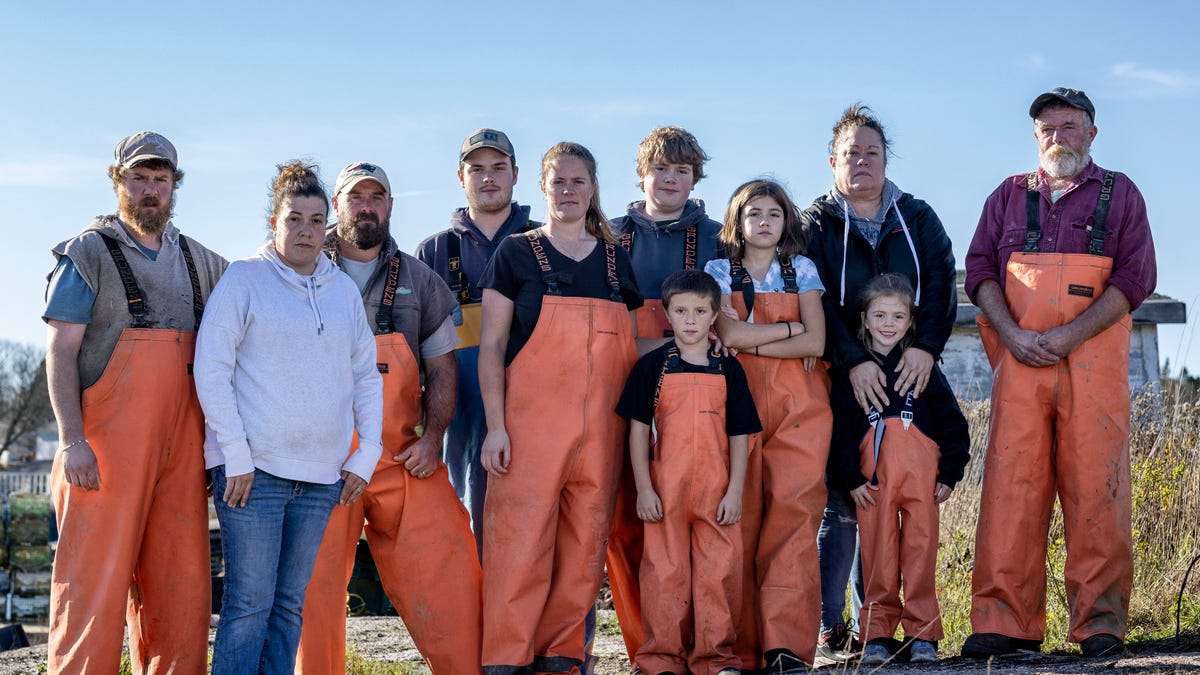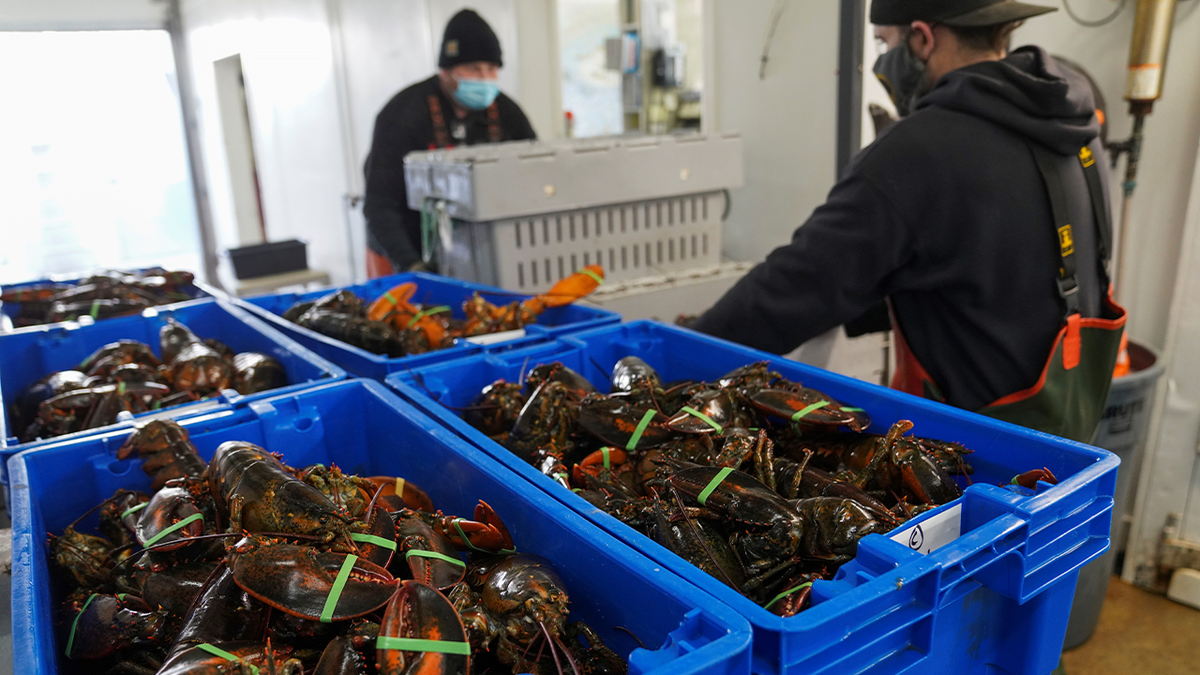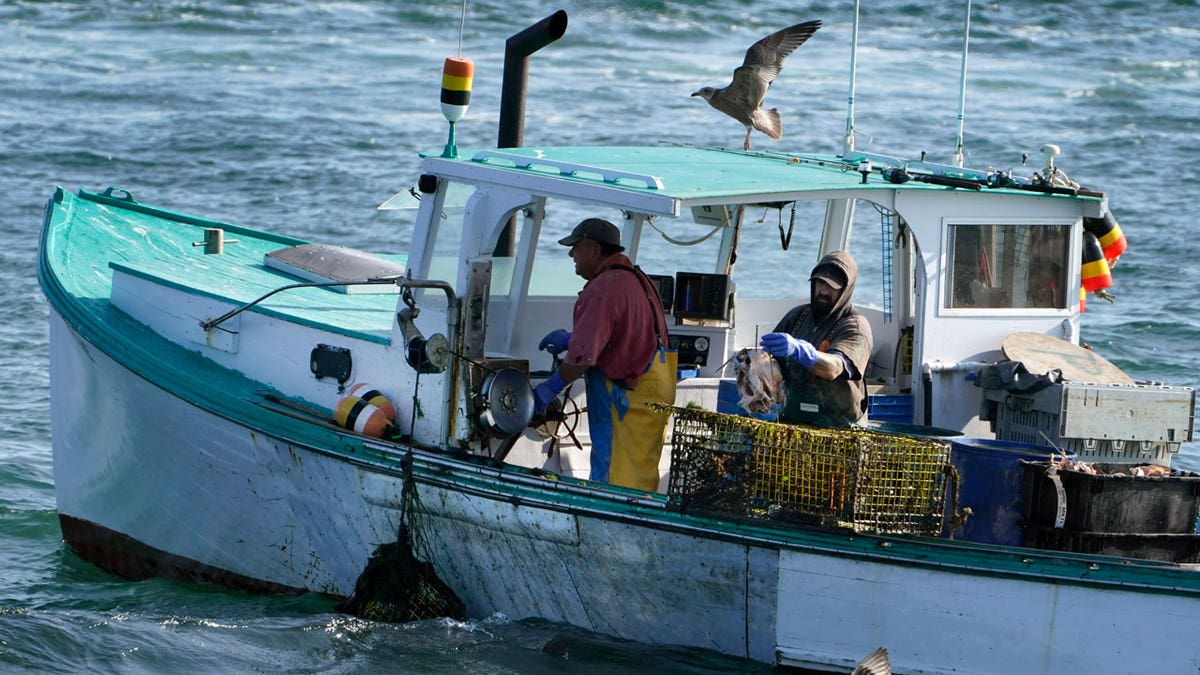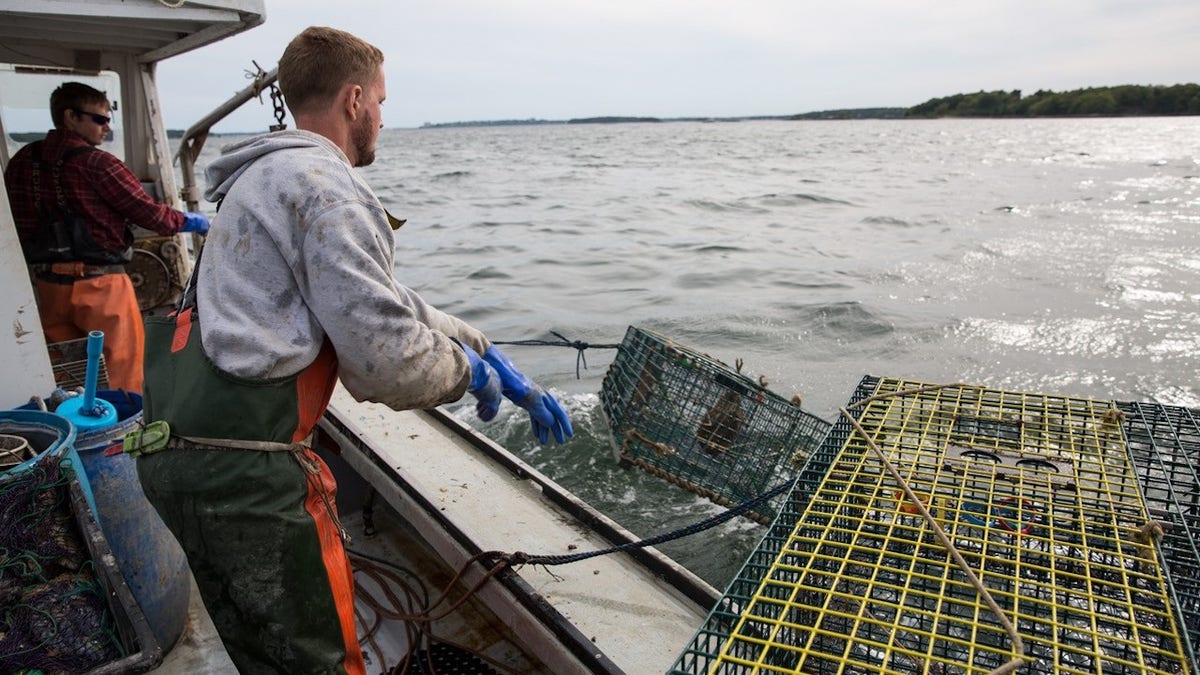Maine lobsterman warns growing environmental restrictions are 'devastating' industry
Fourth-generation lobsterman Dustin Delano reacts to green groups targeting lobster fishing with funds from dark money groups.
A coalition of lobster businesses and industry groups from Maine filed a federal lawsuit this week, accusing a powerful environmental group that doles out "sustainability" ratings of defamation.
The coalition, led by the Maine Lobstermen’s Association (MLA), argued that the California-based Monterey Bay Aquarium Foundation has made defamatory statements about Maine lobster fishing practices, misleading consumers and commercial lobster buyers about the state's lobster harvest, according to the lawsuit filed Monday in the U.S. District Court in Maine.
The Monterey Bay Aquarium's Seafood Watch program makes recommendations to consumers and major seafood sellers about where to purchase products. Last year, the group — which has commitments from companies like Blue Apron, Cheesecake Factory, Hello Fresh and Whole Foods — downgraded Maine lobster from "good alternative" to "avoid," citing risks the state's fishery poses to endangered North Atlantic right whales.
"They conducted this inquiry, this analysis, based on what they characterized as all scientific data and a rigorous and transparent science-based process. But the facts are just the opposite," Kevin Lipson, a lawyer representing the plaintiffs, told Fox News Digital in an interview. "The facts are that Maine lobster fishing practices have actually contributed to the sustainability not only of the lobster fishery, but of North Atlantic right whales."
GREEN GROUPS TARGETING BLUE-COLLAR LOBSTERMEN ARE LARGELY FUNDED BY DARK MONEY

The Bridges family — which includes fourth, fifth and sixth generation lobstermen — from Corea, Maine, is pictured. Bryan Bridges says if he can't sell lobster, it will cause "extreme hardship" for his family. (Cheryl Clegg/Cheryl Clegg Photography)
"There is no science-based analysis that supports the red listing and the impact is really dramatic, not only on the 5,000 fishing families that earn a living from lobstering, but it has a reverberating effect throughout the economy of Maine," Lipson continued. "The effects of this ripple throughout the Maine economy — whether it's real estate, car sales, food sales, employment, tourism — because Maine is synonymous with lobster and an attack on Maine lobstering is an attack on a traditional way of life, a multigenerational way of life."
Lipson added that the coalition had contacted the Monterey Bay Aquarium twice, asking for their data showing Maine lobstermen threatened right whales. He said the request was ignored, forcing them to ultimately file the lawsuit.
MAINE LOBSTERMEN WARN BIDEN ADMIN IS TRYING TO PUT THEM OUT OF BUSINESS WITH HARSH ECO RULES
"The truth is that Maine lobstermen have engaged in innovative practices that have actually contributed to the survivability of the right whale," Lipson said.
"They've removed 30,000 miles of rope from the ocean, they have areas where they don't fish, they've limited the number of traps, they've initiated weakened ropes — that any species that goes through the ropes can break away. And it is those innovations that have actually contributed to the survivability and the sustainability of the right whale."

Workers carry containers with lobsters at The Lobster Co. in Arundel, Maine, in January 2022. (Wang Ying/Xinhua via Getty Images)
In November, shortly after Seafood Watch altered its ratings for lobster caught in the Gulf of Maine, commercial buyers including Whole Foods stopped purchasing the product.
Whole Foods explained at the time that its standards required "all wild-caught seafood sold in our stores must be from fisheries that are certified by the Marine Stewardship Council (MSC) or rated either ‘Green’ or ‘Yellow’ by the MBA Seafood Watch program." The MSC also determined last year that the Maine lobster fishery posed a threat to the right whale species.
But the MLA argued that the rating and subsequent move from Whole Foods would threaten the state's massive, small business-dominate lobster industry. The Maine lobster industry generates more than $700 million on an annual basis and provides the U.S. with about 90% of its lobster supply, making the industry a top economic driver in the state.
NJ CONGRESSMAN DEMANDS INVESTIGATION INTO WHETHER OFFSHORE WIND PROJECTS ARE KILLING WHALES
And under state law, lobstermen are required to own and operate their own vessel, meaning it is exclusively made up of thousands of small business operators. Therefore, actions targeting the industry would primarily impact and shut down small businesses that are vital to rural communities along Maine's coast, according to the MLA.

Lobstermen bait a lobster trap while fishing off the coast of South Portland, Maine. (AP Photo/Robert F. Bukaty)
"This harm is intentional: The Aquarium told businesses and consumers to ‘avoid’ and ‘take a pass’ on purchasing Maine-caught lobster and lobster products on the basis of its false statements," the lawsuit stated. "In doing so, the Aquarium leveraged its significant influence over public opinion and the commercial decisions of major lobster purchasers, using its public platform to pressure those parties into cutting off business with Plaintiffs."
"As a result, several large businesses that had purchased lobsters from Plaintiffs in the past announced that they will no longer carry Maine-caught lobsters because of the Aquarium’s statements," it continued. "This has caused Plaintiffs economic harm in the form of lost business."
Maine lobstermen have also argued, like Lipson, claims that their practices endanger Atlantic right whales or other whale species are inaccurate.
FARMERS SLAM BIDEN OVER LATEST ECO REGULATION TARGETING BUSINESSES: 'FEDERAL OVERREACH'
"Lobstermen have been under constant assault for the past several years. Yet the science is clear — right whales are not dying in Maine lobster gear," Patrice McCarron, the MLA's policy director, said in a statement. "In fact, the opposite is true; innovations by Maine lobstermen have been instrumental in minimizing harm to whales."
According to the MLA, federal data shows that there has never been a recorded right whale death caused by lobster fishing equipment in Maine and the last recorded whale equipment-caused entanglement came more than two decades ago.

Maine lobstermen haul in their latest catch off the state's coast. (Maine Lobstermen's Association/Marketing Collaborative)
"I am a sixth-generation lobsterman. I work hard to support my family and depend on a healthy ocean for my livelihood," said Gerry Cushman, the owner of Maine-based small business Bug Catcher Inc. and a plaintiff in the lawsuit filed against the Monterey Bay Aquarium this week.
"Like my fellow lobstermen, I will continue to do all I can to protect the ocean and its wildlife just as my forefathers have done," Cushman added. "Our stewardship practice is a tradition that defines what Maine is all about. The barrage of lies about Maine fishing practices must be confronted and defeated by truth."
CLICK HERE TO GET THE FOX NEWS APP
John Petersdorf, the CEO of Bean Maine Lobster Inc., said the lawsuit would help eradicate the "damage done by folks who have no clue about the care taken by lobstermen to protect the ecosystem and the ocean."
The Monterey Bay Aquarium Foundation, though, blasted the lawsuit as "meritless" and said there was evidence lobster fishing equipment posed risks to right whales.
"These meritless lawsuits ignore the extensive evidence that these fisheries pose a serious risk to the survival of the endangered North Atlantic right whale, and they seek to curtail the First Amendment rights of a beloved institution that educates the public about the importance of a healthy ocean," a spokesperson for the group told Fox News Digital.














































